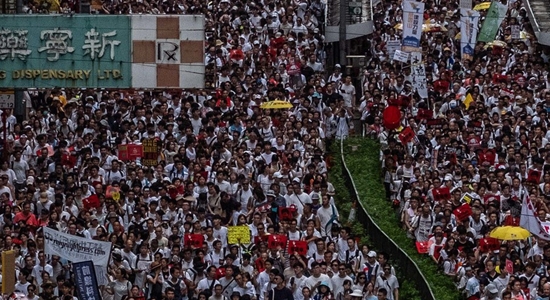
It’s not necessarily over when it’s over.
Of the thousands of Hongkongers arrested for their involvement in the massive protests of 2019 in defiance of an encroaching mainland government, hundreds have spent time in jail. By the end of 2023, the official number of protesters currently behind bars was 780, almost 50 percent more than the year before.
Many others who were arrested but not yet jailed have been waiting in suspense for years. Hong Kong’s chief of security recently stressed that investigations are ongoing and more prosecutions related to the protests of 2019 are to come.
Eventually, those who have been imprisoned are released. But they may have trouble finding work. Companies are worried about their “image”—or about drawing the attention of the authorities. Former friends may cut ties for the same reason.
Those who do secure new employment may be treated “as pariahs in society in a hidden manner,” in the words of one former inmate, who reported being “treated unfairly by former pro-China colleagues.”
The only interviewee who allowed his name to be used in an Associated Press article about released pro-democracy activists, Joker Chan, was barred by his record “from returning to the hotel industry, where he previously worked as a chef” (“Hong Kong young people struggle to rebuild their lives after being jailed under Beijing’s crackdown,” Kanis Leung, August 1, 2024).
After spending five months in jail for publishing seditious Instagram posts, Joker Chan returned to a harsh reality.
Chan, 30, was sentenced in 2022 for posts containing slogans like “Liberate Hong Kong, revolution of our times,” which were popularly chanted during massive anti-government protests in the city in 2019….
Tattoos on his arms, legs and the sides of his neck—some related to the protests—made his job search more difficult. Now, he works as a part-time waiter, earning about half of what he used to make.
Some of his friends severed ties with him, fearing their association might lead to police investigations. His family also expressed disappointment in him, and when he went out with other former protesters they asked him whether he planned to stir trouble.
“I felt helpless. I can’t understand this,” he said, wearing a black t-shirt that read “I am Hongkonger” and with a tattoo of his inmate number on his arm.
Chan says he’d be more cautious if he could do things over. But he doesn’t regret his involvement in the protests.
“Regret can lead you to overturn what you originally firmly stood for.”





